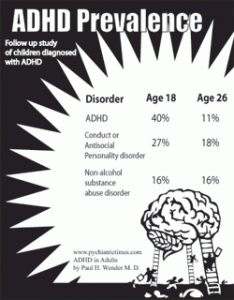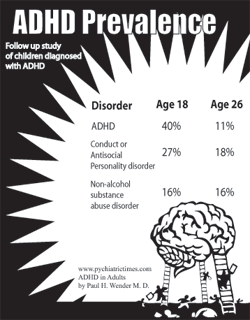By Anna Alvarez/reporter
 Misplacing homework or keys, tuning out the professor and getting excessive speeding tickets are situations familiar to college students.
Misplacing homework or keys, tuning out the professor and getting excessive speeding tickets are situations familiar to college students.
However, some students experience these occurrences daily and frequently because of Attention-Deficit/Hyperac-tivity Disorder.
“According to research, at least three students in a class of 30 could have ADHD or some other learning disorder; most of them undiagnosed,” Anita Peters, a NE Campus counselor, said in a Collegian interview.
The most common symptoms for ADHD include poor organization, frequent tardiness, mood swings, restlessness, beginning a task and not completing it, misplacing things and constant procrastination, Peters said.
“ Students who have any form of ADHD are simply dealing with a difference in their biochemical makeup, which creates difficulties for them in staying focused, getting started on projects, following through and completing them,” she said. “It’s really no different than someone who is near-sighted.”
Synonymously called ADD, ADHD was recognized as a legitimate condition in 1998 by the U.S. government. For this reason, many adults have not been diagnosed. According to the National Institute of Health, an estimated 2-4 percent of adults in the United States have ADHD.
If not properly treated, ADHD can make student life difficult. Turning papers in when they are due, getting to class on time and sitting through class are not easy tasks for ADHD students.
Grades can drop considerably even though the student has the capability to excel in school, Peters said.
“ One of the main things students need to know, however, is that individuals who have ADHD or related disorders are typically bright (average or above average intelligence) and are resourceful, which has enabled them to succeed to this point,” she said. “They are truly some of the brightest and best.”
ADHD symptoms can be confused with symptoms of depression, early onset of bi-polar disorder or other learning disabilities. Thus, it is important to be diagnosed appropriately, Peters said.
Diagnosis for ADHD can be given by a family doctor familiar with the disorder, and then the individual can be referred to a specialist for further testing. Testing is usually divided into several sessions.
Medication is usually given to help treat the disorder, but it is not a cure. Peters said there is no “magic bullet” medication.
“ For those who take medication, the medication is designed to better balance their brain chemistry, which allows them to focus more consistently,” she said. “But they may also need to learn how to organize, study more effectively, etcetera.”
Peters said students should be aware of different resources to help them with ADHD. She suggested reading more about other options, referring students to Delivered from Distraction by Dr. Edward Hallowell and Dr. John Ratey, both of whom have ADHD.
TCC can accommodate students with ADHD. Peters said ADHD students who can provide proper documentation to the disabilities support services office can receive assistance such as extended time for tests and taking tests in a distraction-free setting.
Disability Support Services facilities are available on every campus.
ADHD is not just a childhood disorder, nor one that should make someone feel inadequate in the pursuit of an education.
Peters said it is a disorder that, if diagnosed and treated, will open new doors for struggling students.
“No two people are exactly alike internally, including biochemically,” she said. “When our uniquenesses or differences begin to slow us down or impede us, they may be diagnosable. But I emphasize to students that different is just different, not defective.”
For more information about ADHD/ADD, various Web sites such as add.org or adhd.com provide facts and also screening for the disorder. These Web sites do not diagnose a person; only a doctor can, Peters said.
Students who have ADHD can contact the campus DSS for further testing resources or talk to a campus counselor.




























